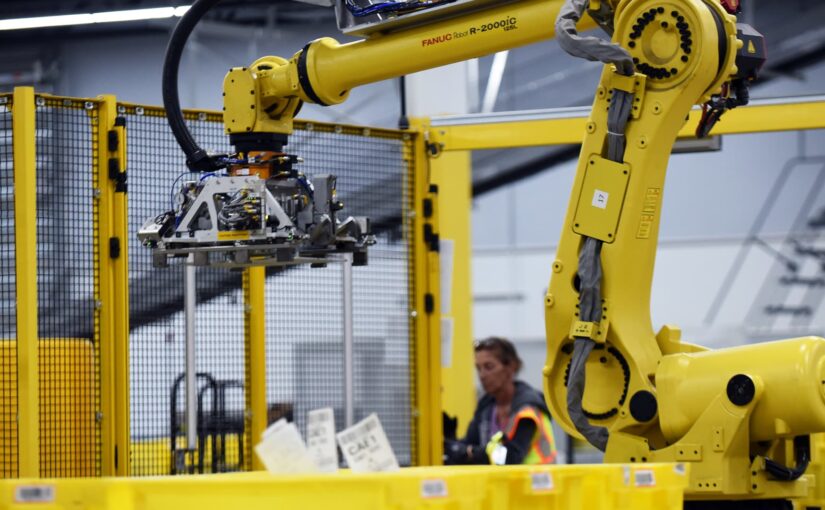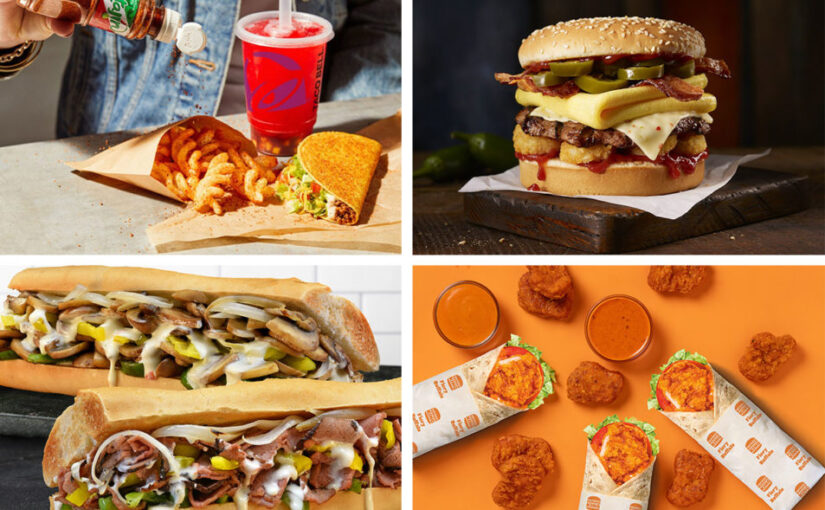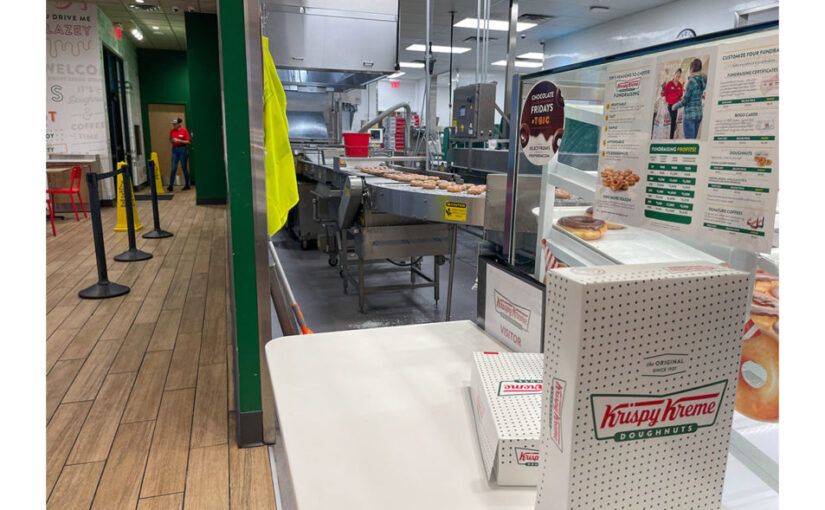SAN FRANCISCO — At times attendees of the Future Food Tech conference held March 21-22 in San Francisco may have been skeptical about the futuristic discussions taking place during the program and on the exhibit floor. At other times, it all came together and made sense. And even better – it made sense for right now.
“Foods have to be delicious and nutritious,” said Isabelle Esser, chief research and innovation, quality and food safety officer for Danone SA, Paris. “Technology needs scale and impact. It’s all about positive nutrition, and this requires collaboration.”
That’s much of what Elo Life Systems, Durham, NC, is striving to accomplish. Elo Life’s molecular farming platform produces ingredients that may be difficult to harvest from natural sources and may not be synthesized through artificial or other techniques. The company produces easy-to-grow crops as bio factories for the ingredients.
“We’re on a mission to unlock nature’s abilities to make consumers’ favorite foods more delicious, healthy and planet friendly,” said Todd Rands, chief executive officer of Elo Life Systems. “It’s about making foods more nutrient dense, not calorically dense, which has been the case with our food system since the second half of the 20th century.
“We use AI (artificial intelligence) and proprietary algorithms to gain deeper insights across native genomes, genes and traits. Innovation with healthy and sustainable food is desperately needed, and our collective future depends on creating new solutions that do not exist today.”
The company’s first product is a monk fruit-derived sweetener that will launch in 2026. Rands said the company is working on the production of varied bioactive ingredients and novel proteins.
Algorithms enable machines to learn and make decisions. Otherwise known as generative artificial intelligence, the technology is “transforming possibilities into reality,” said Lanette Shaffer Werner, chief innovation, technology and quality officer, General Mills, Minneapolis.
“For us, AI is a member of the team. It’s like having an intern on the team, who contributes like all other team players.” said Shaffer Werner. “AI provides input to our final decision. We still keep the consumer at the heart of everything we do.”
Lanette Shaffer Werner, chief innovation, technology and quality officer at General Mills. Photo: General Mills
She explained how AI is an active player behind the scenes and how AI allows us “to have one eye on today and one on the horizon. For example, before a new product goes into test market, we can work with digital concepts generated by AI,” said Shaffer Werner.
Another valuable use for AI at General Mills is for a review of scientific literature. The company works with the program scite to get answers to all types of food innovation issues, everything from ingredients to food safety to yield.
“There are billions of scientific articles, many containing insight and solutions to issues we are facing,” Shaffer Werner said. “With AI, we can dedicate our resources to ‘doing’ instead of untangling pandora’s box.”
Brightseed, San Francisco, uses AI to discover bioactive compounds in nature and develop healthy food ingredients. The company served its newly launched bioactive fiber in yogurt parfaits at Future Food Tech.
The fiber ingredient was developed in partnership with Manitoba Harvest, Winnipeg, Man. It is a multi-benefit fiber solution developed from upcycled hump hulls. The product is unique for the fiber market as it has two phenolic bioactive compounds that research has shown may strengthen the gut lining to help maintain healthy gut barrier function.
“Bioactives are the unsung heroes of proactive health and today. The majority of people don’t consume enough to capture the full impact of their benefits,” said Sofia Elizondo, co-founder and chief operating officer of Brightseed. “Now that our AI Forager is powering the discovery and understanding of bioactives at an unprecedented rate, our mission at Brightseed is to transform those insights into accessible and powerful wellness products across the globe.”
Israel-based start-up Celleste-Bio uses a proprietary combination of biotechnology and AI to produce cocoa ingredients. Precision fermentation eliminates the dependence on cultivation of cocoa trees and will help ensure cocoa yield supply is invariable, not dependent on climate conditions, close to production sites and a final product of superior quality.
This is accomplished without genetic modification or manipulation by extracting cocoa cells from cocoa pods and growing them in a controlled setting with water and nutrients. It is a continuous cycle that repeats itself, without needing to crack open another pod.
“We want to offer people the pleasure and health that high-quality cocoa products provide, while eliminating the challenges of sustainable production that we face in cocoa production today,” said Hanne Volpin, co-founder and chief technology officer.
AI has helped Olipop, Oakland, Calif., grow its subscription platform by more than 35%. The company makes soda healthier, without necessarily broadcasting it, according to Olipop. While traditional soda has high levels of sugar, each can of Olipop contains 35 to 45 calories, 2 to 5 grams of natural sugars and 9 grams of prebiotic plant fiber.
“Americans have enjoyed soda for over 125 years. It has deep emotional and cultural resonance for consumers, and the category has become intertwined with our daily lives,” said Ben Goodwin, co-founder and CEO. “Our goal has always been to offer a product that can truly occupy the space that traditional soda has filled while also contributing to consumers’ overall well-being.”
Goodwin defended the concept of “ultra processing,” which has become the latest target in the food policing world. The reality is that the future of food depends on ultra processing.
“Ultra processing is necessary to make the fiber ingredient to get it into our beverage,” Goodwin said. “Rather than trying to tell consumers they can’t have soda, we are making it better for them. Olipop is more than ‘not harmful.’ It has a benefit.”
Providing a benefit in the form of sustainable practices also was a recurring theme at Future Food Tech. However, sustainability cannot be the No. 1 selling point, said Jack Bobo, director of the University of Nottingham’s Food Systems Institute in the United Kingdom. First comes taste, nutrition and price.
“Consumers don’t change their eating habits to save their lives. Why would they do so to save the planet?” Bobo said.
One Good Thing, Hertfordshire, England, believes it hits all the marks — taste, nutrition and price — with the extra plus of sustainability. The start-up has produced a range of wrapper-less oat and protein bars in a bid to reduce plastic waste for on-the-go snackers. Each bar is made from raw, cold-pressed ingredients coated with an edible beeswax film, that dries hard enough to hold and protect the contents but is thin and soft enough to chew easily.
The beeswax coating acts as a replacement to a traditional plastic or paper wrapper. Each bar is durable, and the packaging is waterproof. The only packaging is the cardboard boxes that the bars are delivered in, which is made of 70% recycled material and is 100% recyclable.
“The idea for One Good Thing came to me when I was out cycling and saw the sheer volume of snack wrappers. So, I challenged myself to think about how I could resolve the problem for people snacking on the go,” said Mike Bedford, founder. “We like to think of our bars as just like eating an apple. When you’re ready to eat one, you can just give it a quick rinse and pop it in. It’s that simple. Our innovation doesn’t just limit plastic waste. It removes it entirely.”










